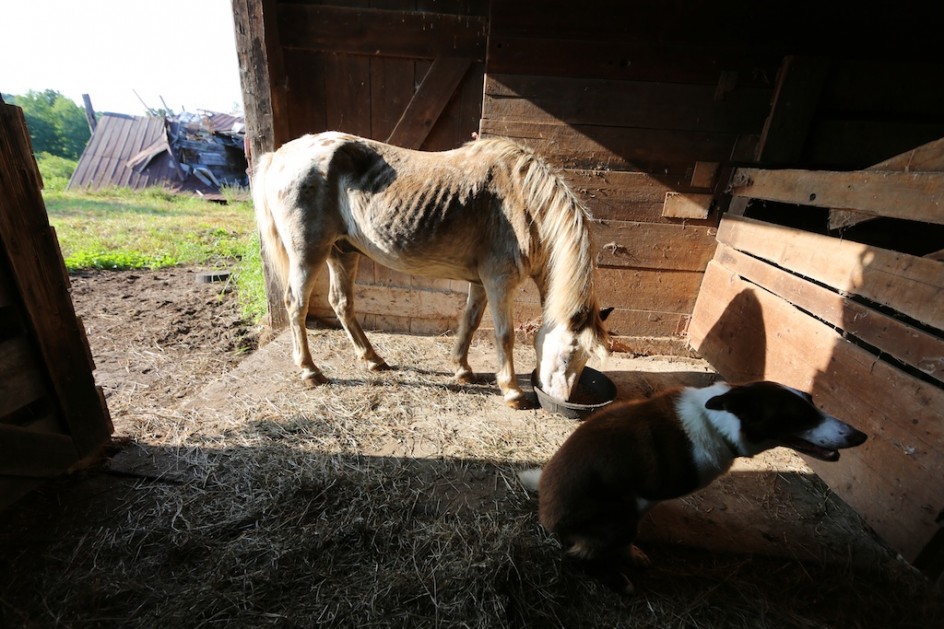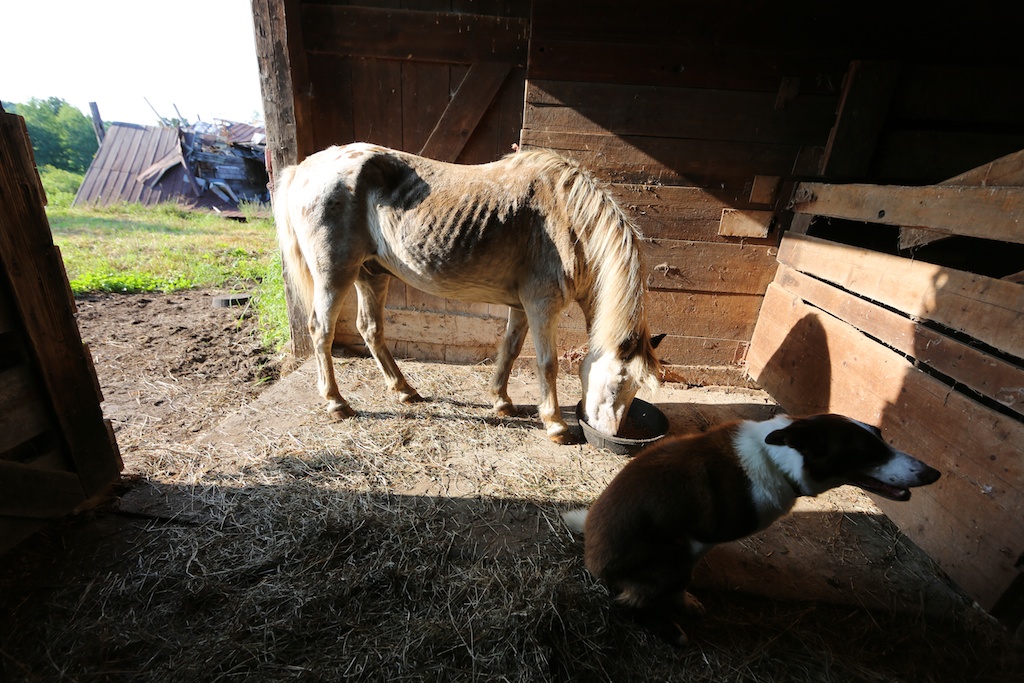
Rocky has taught me many things, as have my other animals. The big lesson for me is to listen to animals, not to people talking about animals. It took Rocky two days to figure out the step up to his new stall, and he is in there all the time, now, except at night, when he is grazing, getting water, going to his secret places.
From the first, Rocky has symbolized our growing tendency to see animals as piteous, abused, in great need of our expensive and often anxious and presumptuous care. Instead of listening to them and given them the opportunity to solve simple problems, we rush to assume they must have our care to survive. This makes us feel good, but I have never been sure it is good for them. If I listen to all of the people bombarding me with ideas — containment areas for chickens, traps and lures for the foxes, ramps and gravel for Rocky (not the mention the near hysteria when I posted the first photos of him with the fallen barn) I would be broke and I would not have learned the lessons I have learned from this amazing animal about acceptance, resilience, and the astonishing and inspirational ability of animals to adapt.
Rocky is blind, and when we opened up a stall to give him his first shelter in 15 years, he was anxious about the step. Many people thought we should build ramps, rearrange the dirt, rebuild the stalls. I could not begin the read the many – and very expensive – solutions people were proposing.
Here’s an idea, I posted on Facebook: how about I do nothing and let him work it out.
So we did nothing, the one thing we have learned every day is the best thing to do sometimes. It was fascinating to watch Rocky figure out what we were doing and what he needed to do. He nosed the step, then moved his front hooves up slowly until he found it. He first put his front legs in, then the rear. We left grain and hay in the barn for him. It took him about 24 hours. Now he has gauged the space and distance and walks in and out constantly. He loves the shade and the relief from the flies, and now, the stall is his new headquarters.
It is gratifying and very rewarding to see this. And important for me – Maria very much agrees – to continue to resist the epidemic emotionalizing of animals, and the increasingly common tendency to see them through the prism of abuse, need, and pathetic incompetence. They don’t always need our money and ideas to work their way through life. And it is okay to have animals that are happy and healthy and independent.
I want to listen to these animals, not talk at them. I want to see how they deal with life, not rush to toss expensive and neurotic human approaches to life at them. Are we so perfect and happy that we have all of the answers for them? There are times when we need to intervene, many times when we do.The old sheep are spending their last summer here, and I am not sad about them. I learn from them every day. There is nothing to be sad about. They are living their lives.
And times when we don’t. Rocky is in the stall. The chickens are thriving. The foxes have moved on. All of our animals will move to the new farm, and all will adapt well, because we treat them well and allow them to be well.
Animals have their own wisdom, and personally, I decline to see them only in terms of abuse and as piteous and dependent creatures in need of perpetual rescue. I need them more than they need me, and I learn much more from them than they learn from me. Thanks again, Rocky, for teaching me about life.

